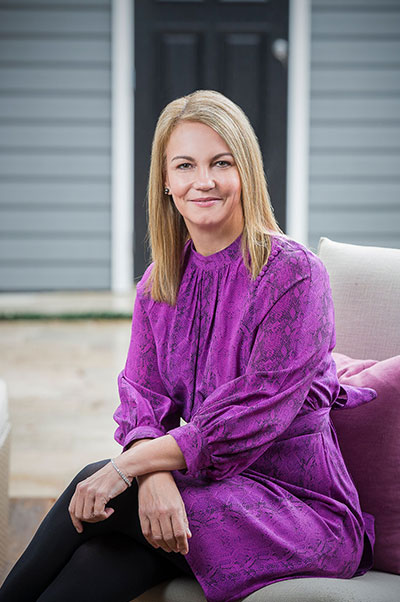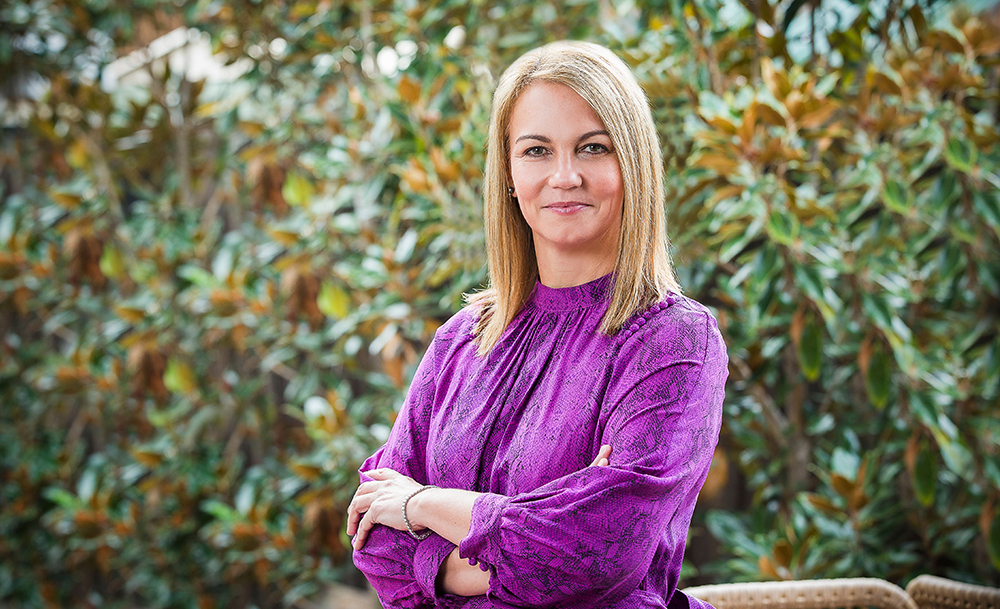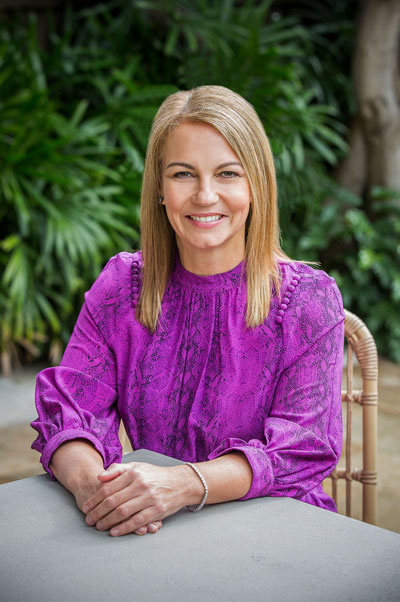At the 2019 ASFA Conference, Ernst & Young’s Oceania Chief Economist, Jo Masters, shared a stage with the RBA’s Assistant Governor, Michele Bullock, and high-profile economist, Tim Harcourt.
The Australian economy was slowing, and the discussion turned to downside risks. But few could have predicted the risk that was about to smash Australia: the shutting of huge swathes of the economy to ward off a global pandemic.
“Nobody had any idea of where we would be a year on,” says Masters, who recently presented at the ASFA Economic Update. “The [Economic update] event was a totally different setting to the 2019 Conference – delivered virtually and with an economy in recession.”
With Australia battling the biggest downturn since the Great Depression, Masters has found herself front and centre of the national conversation. “I really want to make a significant contribution to the policy and economic debate in Australia, and for EY to be part of that as we move through this COVID environment,” she says.
I really want to make a significant contribution to the policy and economic debate in Australia, and for EY to be part of that as we move through this COVID environment
Despite the economic carnage the virus crisis has wrought, she sees an opportunity to remake Australia through a series of reforms that will spur recovery and reinvigorate the economy.
But the crisis is creating additional risks. Masters is particularly worried that COVID-19 threatens to unwind the great strides Australia has made in closing the gender imbalance in superannuation.
“That’s something I think we need to really keep a keen eye on, particularly as we understand the demographics of who has been withdrawing early from super,” she says. “That will be a really important challenge for the industry to take on.”
Building a career in economics
Masters grew up as an expat in Hong Kong, where her father was based as a land surveyor, which was influential in her career. “It was a very innovative and fast moving and dominant financial sector even back then,” she says. “You’re seeing it, living it and breathing it.”
Masters was also good at economics at school, and when she finished boarding school in Auckland (her mother was a New Zealander), she took an undergraduate degree in economics and geography at the University of Auckland where she was awarded the Senior Prize in Economics. She later completed a Masters in Economics at the University of Sydney.
She joined Macquarie Bank as a graduate economist at the start of 1995. Four years later she moved into sales at Macquarie’s FX team, and suddenly her research was measured in real world outcomes: wins and losses in currency markets. “I remember my largest forex trade and the one I lost the most money on,” she says. “But it really drove my passion, which is making economics relevant and relatable, rather than thinking about it from a more theoretical background.”
Masters’ career was in the ascendency. Then disaster struck. Her youngest daughter, a little over a year old, became critically ill and required urgent brain surgery. “It was traumatic and life changing.”
She took time off work straight away, but then returned, trying to juggle a high-powered career and the demands of caring for a very sick child. But Masters realised her daughter was the priority, and she left Macquarie. Just two weeks after her daughter fell ill, the GFC struck.
Fortunately her daughter is doing really well and is now a “great little teenager doing all things a teenager should do”.
However Masters says the crisis shifted her priorities in a good way. “It taught me that your life can change overnight; so always be grateful for the things in your life that are good.”
Life can change overnight; so always be grateful for the things in your life that are good
When it was time to return to the workforce, Masters joined ANZ as Senior Economist, which gave her broader exposure to corporates. “I love working in that [corporate] space; I find you can make a much more palpable difference to businesses.”
To plan her next career move, Masters worked formally with a mentor Bernard Riley, who pushed her to think outside the next obvious step and think more broadly about her skill set and values.
In January 2019 she moved further into the corporate arena when she became Chief Economist at Ernst & Young Oceania.
Planning for a post COVID-19 future
Masters has been given a broad remit to work under EY’s purpose of ‘building a better working world’.
But in the wake of COVID-19, as an influential economist and major accounting and consulting firm, Masters and EY respectively have a key role in the debate about how to best position the Australian economy for recovery and future growth.
Australia faced economic challenges before COVID struck, Masters says. Economic growth was the slowest since the GFC; and the growth base was narrow, supported by public spending and net exports. The household sector was also carrying a lot of debt and experiencing weak wage growth.
“But they [Australia’s economic challenges] are even bigger now,” Masters says.
She says the current recession is different from others because of the speed of the contraction. Hopefully that means the path out will be faster than the likes of the ‘long and arduous’ recovery from the early 1990s Keating recession. But “there will be economic scarring,” Masters says. “There will be businesses that go out of business and people that never come back to the workforce.”
While consensus forecasts are for 4-6 per cent growth next year, after 4-6 per cent contraction this year, Masters says the level of economic activity at the end of 2021 will be below what it was at 2019. “That would indicate a U-shaped recovery rather than a V, and a bumpy U at that.”
“It will take time to come out of this,” she says, adding that house prices are likely to fall and unemployment will increase; households are likely to be more cautious in the next decade than they have in the previous ten years; and population growth, which many sectors have relied on, will also fall.
Through its ‘Conversation with the Nation’ initiative, EY had already formed a gathering of business leaders to discuss issues around driving reform, sustainability, and digital transformation in the Australian economy.
Reforms will be vital in reinvigorating the economy. Masters says Australia will need to address a number of issues weighing on our economic performance: the red tape burden; a complex industrial relations system; the emerging skills gap; improving the efficiency of our tax system; and refocusing the infrastructure pipeline.
But Masters says that there are also opportunities in the stimulus and recovery. She wants the Government to put a ‘sustainability and climate lens’ on its spending which will be ongoing to support the economy.
“How can we use that to drive faster towards environmentally sustainable objectives? If the Government needs to spend to support demand, say infrastructure, for example, how can we put a sustainable and climate lens on that infrastructure?”
Photography by Aran Anderson.
Big things ahead for superannuation
Superannuation will also play a major role in the economic recovery.
Masters says super is a cornerstone of the economy. “I’m a big believer in it; I’m a big proponent of young Australians ensuring they’r
e doing everything they can around super, particularly the challenges they face in a world post-COVID that will have higher unemployment and lower wage growth.”
The superannuation industry has contributed to the Australian economy, not just via the impact on saving for retirement, Masters says, but also by investing in infrastructure and property. “Allowing the flexibility for funds to continue doing this will be important.”
Most super funds have taken a hit to their investment performance, and Masters says these are challenging times with a lot of volatility in investment markets. “One of the biggest challenges is it’s incredibly hard to value investments or assets. We have a highly uncertain demand environment; and the cash flow environment is also highly uncertain.“
Markets are now balanced between the damage to the real economy of COVID-19 and “cheap money hunting for a home” after a ramp up again in Quantitative Easing and unwinding of rising interest rates, Masters says. “The world will remain awash with cheap credit and looking for opportunities to make returns on that.”
Masters says that after the GFC, investors shifted up the risk curve because they were looking for returns. “I suspect that will continue.”
Strategising a better outcome for women
Amidst the economic damage and market volatility, one of Master’s major concerns is the impact of COVID-19 on women’s finances.
She has long been an advocate for empowering women in finance.
Masters sits on the advisory Committee for the Financy Women’s Index, which measures the economic progress of Australian women on a quarterly basis. “I’m really proud to be involved with that because at the end of the day we know what we don’t measure never gets fixed,” she says.
One of the biggest financial issues facing women, of course, is superannuation, where they have traditionally lagged men.
Australia had been making great inroads in closing the gap between balances. The March quarter Financy Women’s Index report notes that the gender gap in superannuation account balances has fallen by 12 per centage points since 2010. Although Masters acknowledges that, according to the ABS, the median superannuation balance for women in 2017-18 was still lower, at $45,000 compared to $65,000 for men.
But Masters says COVID-19 could hurt that progress.
She notes that data, including ABS payroll data and labour force data, seems to be showing that more women are taking a greater knock to jobs than men. In April alone, 325,000 females lost their jobs and a further 298,000 females left the workforce, meaning they are not available or not looking for work, more than males on both counts. Women leaving the workforce is particularly concerning given the potential for discouraged workers, who in a recession can find it difficult to get back into the workforce and find a job.
“We made progress but now there’s this additional headwind around super gender balance,” she says.
We made progress but now there’s this additional headwind around super gender balance
Masters is particularly concerned about females retiring and not owning their own home. She says these women are facing really difficult hardship.
Protecting the progress of women in super will mean improved education but also “ensuring we have got policy settings that allow people to catch up if possible”.
 With a high-powered career, and two teenage daughters, and now making a major contribution to the huge economic challenges facing Australia, Masters says she is running her life “pretty fast”.
With a high-powered career, and two teenage daughters, and now making a major contribution to the huge economic challenges facing Australia, Masters says she is running her life “pretty fast”.
She has learnt to manage the juggle by adjusting her attitude. “It’s taken me time to learn and I wish I’d adhered to it earlier in my life, I don’t sweat the small stuff any more at home or ideally at work. If neither of my daughters make their bed in the morning, I no longer sweat that.”
But Masters says she also copes with her hectic life primarily because she genuinely loves what she does. “Not every day is amazing; I don’t love every aspect of it; but I do fundamentally love what I do. I enjoy doing it and I enjoy interacting with people around it.”
Masters would love more young women to follow her into the economics profession. She says in a post-COVID world there will also be lots of demand for economic analysis and policy. “The next few years we’re going to have economic challenges and there is no doubt there will be reforms implemented to address these challenges. So it’s a great time to be an economist.”
But she says economics is also a great career because it lets you change the world you live in. “It’s a solid career; but it’s one that has that purpose of making the world a better place for you and your children and grandchildren.”
As Australia and the world grapple with the unprecedented fall-out from a global pandemic, that purpose has never been more important. “As a mother of two children, I want to make sure we build an Australia that continues to have economic opportunity and job opportunities and is the best place we can make it to live, work and play.”




































